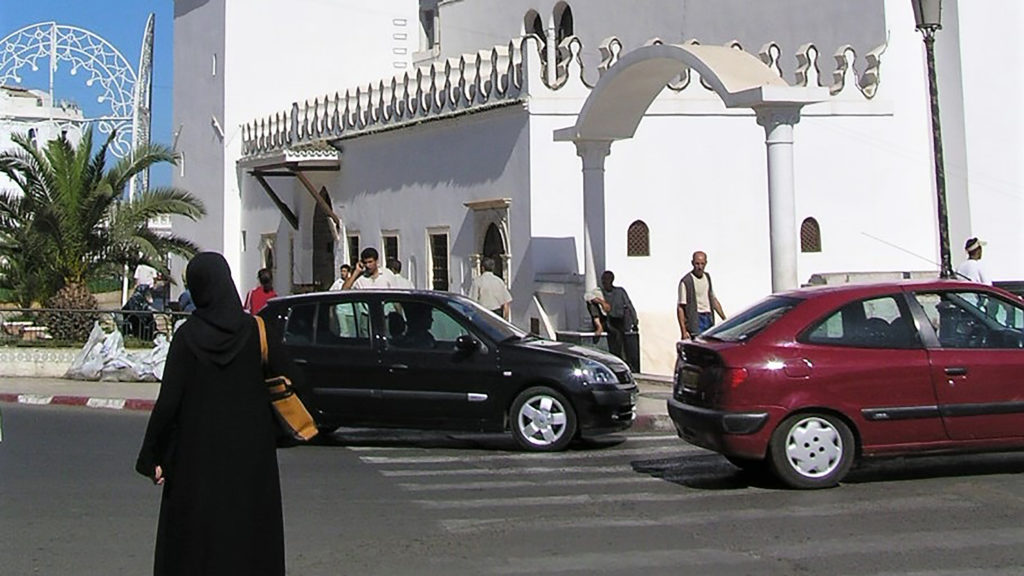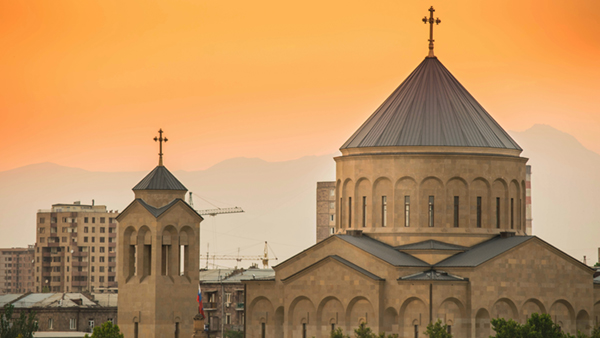As terrorism, executions and revenge attacks continue to claim headlines in the Middle East, two acts of mercy went relatively unnoticed.
In Saudi Arabia, where its eye-for-an-eye brand of justice prescribes death for a variety of offenses, a 19-year-old Saudi prince convicted of gunning down another young man was dragged into a public square in Riyadh May 1 for beheading. Standing blindfolded as the executioner prepared his sword, the terrified prince shouted, “For the sake of God, spare me!”
His victim’s father suddenly emerged from the crowd of spectators and forgave the young man, who was indeed spared.
As practiced in Saudi Arabia, Islamic law allows a victim’s family to pardon the condemned as an act of mercy. In this case, however, “It was a big shock, since [the father] and his brothers had told the officials to make sure the execution was carried out,” a justice official was quoted by wire services as saying.
A nearly identical incident reportedly occurred March 26 in the Saudi town of Tabuk. A 21-year-old condemned man — kneeling, blindfolded, seconds from death — was spared beheading when his victim’s father stepped forward and said, “I forgive you.”
Perhaps strings were pulled behind the scenes, and perhaps the victims’ families were persuaded to show mercy at the last moment. But maybe two brokenhearted fathers who had the power of life and death in their hands decided to allow mercy to triumph over justice.
What an illustration of the mercy of God, who forgave those who killed His only Son. How desperately such mercy is needed — and desired — in the Muslim world at this historic moment.
That truth can get lost in the sound and fury about a “clash of civilizations” pitting militant Islam against the West and democracy against tyranny. Such struggles will unfold in the political and military spheres, but they shouldn’t be confused with the bigger picture of God’s plan.
After 9/11, an Egyptian believer in Cairo, Egypt, got on his knees and pleaded for God’s mercy over his land, where Jesus once found sanctuary when Joseph and Mary fled from Herod. He expected the Egyptian church to suffer in the days to come — partly from the renewed surge of Muslim extremism, partly because of the increasing boldness of believers. He prayed for believers, but mostly he prayed for the millions of Egyptian Muslims seeking a shepherd.
“Extend Your mercy, O Father,” he said over and over, as tears mingled with sweat on his cheeks.
God is answering that prayer in many ways, not only in Egypt but throughout the Muslim world. He is revealing Himself through dreams and visions, through the lives of His followers, through His Word as hungry souls seek it out. No one should be surprised about the runaway success of “The Passion of the Christ,” now playing to sold-out crowds in Egypt, Syria, Qatar, Lebanon and Jordan (and on pirated DVDs in Yemeni and Afghan street markets).
“It has beaten all records,” a Middle East distributor was quoted as saying. “It’s more popular than ‘Titanic’ and the James Bond films.”
Governments in some Muslim countries are allowing the film to play because of what they assume to be its anti-Semitic message. Many Muslims may be attending the movie for the same reason. When they get there, however, they see a Jesus they’ve never seen before: a Jesus who loves and forgives despite His terrible sufferings, a Jesus who offers the mercy and salvation of God to anyone who will embrace it.
One Turkish woman who saw the movie had been considering the claims of Christ for some time. Like many Muslims, however, she didn’t want to be rejected by her family for following Jesus.
Seeing the truth
After seeing “The Passion,” she “could no longer deny what she knew in her heart to be true,” a friend said.
“That night, after many tears, she opened her heart and for the first time accepted Jesus as her Lord and Savior. Many of us sowed, many of us watered, but it is the Lord of the harvest that drew her to Him.”
Some Muslims despise Western culture, while many crave Western-style freedoms and wealth. But the West is not the real issue. Jesus is. Is this man a dead prophet or the living Son of God?
“That’s the only issue we want to stumble over,” says one missions leader. “We don’t want to stumble over Westernism.”
Jesus is Lord over East and West, North and South. He will be worshiped one day throughout the Muslim world. (BP)





Share with others: